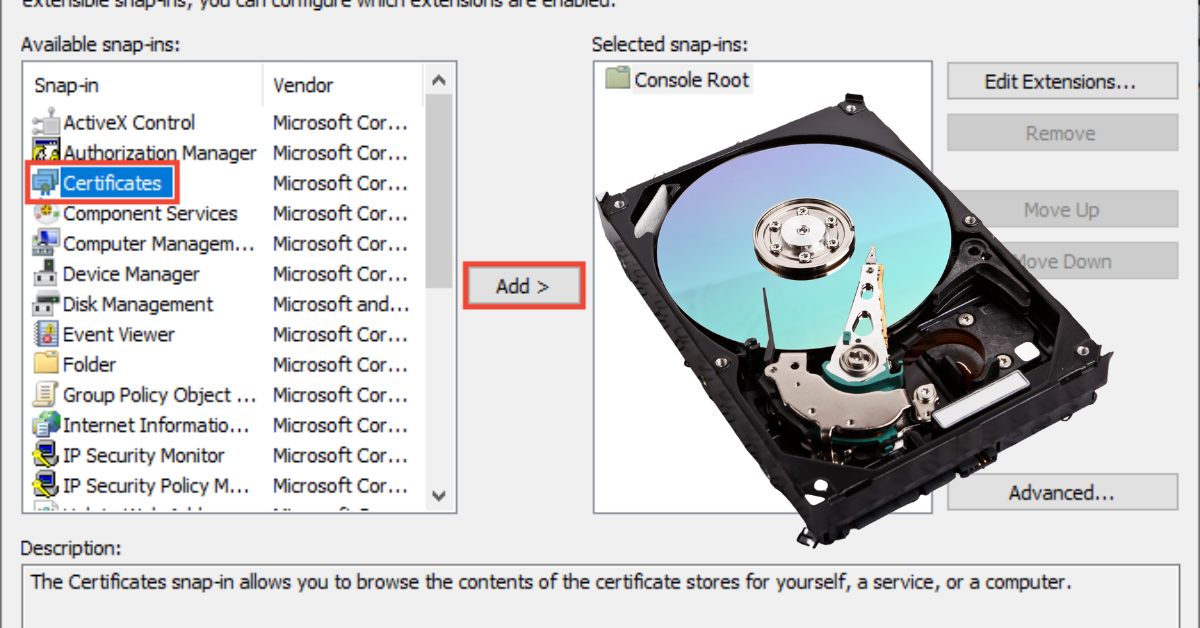Recovering data from an encrypted hard drive can be challenging but possible under certain conditions. Success depends on factors like encryption strength, key management, and the availability of backup encryption keys. Seeking professional data recovery services can also enhance the chances of successful data retrieval.
Data loss can be a daunting experience, especially if you store sensitive information on your hard drive. Many users turn to encryption to safeguard their data as a means of protection. However, this added layer of security can also lead to concerns about data recovery in the event of accidental loss or hardware failure. This comprehensive article will delve into the world of encrypted hard drives and explore the possibilities of data recovery.
Understanding Encrypted Hard Drives

An encrypted hard drive is a storage device that utilizes encryption algorithms to convert data into unreadable code. This encryption safeguards against unauthorized access, providing extra protection for sensitive information. When a user accesses the encrypted data, it is automatically decrypted back into its original form.
There are two main types of encrypted hard drives:
-
Hardware-Based Encryption
Hardware-based encryption is integrated directly into the hard drive’s firmware or controller chip. It provides real-time encryption and decryption of data, making it transparent to the user. This type of encryption is often considered more secure since the encryption keys are stored directly on the hardware, reducing vulnerability to software-based attacks.
-
Software-Based Encryption
As the name suggests, software-based encryption relies on encryption software to secure the data. Users typically need to enter a password or passphrase to unlock the encrypted drive and access the data. While software-based encryption is more flexible and can be used on various devices, it may be more susceptible to certain cyber attacks.
The Complexity of Recovering Data from Encrypted Drives
When it comes to encrypted hard drives, data recovery can be a complex process. The whole purpose of encryption is to make data unreadable to unauthorized users, making recovering data from an encrypted drive more challenging than a non-encrypted one.
Various factors influence the complexity of data recovery from an encrypted hard drive:
-
Encryption Strength
The strength of the encryption algorithm used plays a significant role in determining the feasibility of data recovery. Strong encryption algorithms, such as AES (Advanced Encryption Standard) with a 256-bit key, are extremely difficult to crack. On the other hand, weaker encryption methods may be more susceptible to brute-force attacks.
-
Encryption Type
The type of encryption used also affects data recovery possibilities. Hardware-based encryption may provide additional security, making it harder to bypass than software-based encryption.
-
Key Management
Recovering data from an encrypted drive requires the encryption key used to encrypt the data. If the encryption key is lost, forgotten, or damaged, data recovery becomes significantly more challenging, if not impossible.
-
Physical Damage
In cases where the encrypted hard drive has suffered physical damage, data recovery becomes more complicated. Repairing the damaged drive to access the encrypted data may require specialized expertise and tools.
Data Recovery Options for Encrypted Hard Drives

While data recovery from encrypted hard drives is challenging, but not entirely impossible. There are a few potential options to explore if you find yourself in a situation where data recovery is essential:
-
Using the Certificate Manager:
The Windows operating system provides a built-in tool called the Certificate Manager, which enables users to recover data from encrypted hard drives. By importing the EFS (Encrypting File System) file encryption key to a specific location, you can later use it to decrypt the drive. Here’s a step-by-step guide:
Step 1: Open the Startup menu and type “certmgr.msc” in the Search box. Press the Enter key to launch the Certificate Manager. Alternatively, you can access it through the Run Prompt.
Step 2: Once the Certificate Manager opens, you will see various categories of certificates.
Step 3: Select the “Personal” tab, right-click on it, and choose the “Import” option from the “All Tasks” menu.
Step 4: The Certificate Import Wizard will appear, allowing you to copy the certificates from your disk. Follow the on-screen instructions and authorize the import of the encryption keys to the desired location.
Step 5: After the import process is complete, you can use the key to decrypt your files, gaining access to your drive data
-
Professional Data Recovery Services
Seeking assistance from a professional data recovery service is often the best course of action when dealing with encrypted data loss. These specialists have the expertise, experience, and tools to attempt data recovery from various types of encrypted hard drives. They may also have access to specialized hardware and software that can aid in the recovery process.
-
Encryption Key Backup

One of the most critical aspects of data recovery from an encrypted drive is having a backup of the encryption key. Having a backup copy of the encryption key securely stored in a separate location significantly increases the chances of successful data recovery.
-
Contact the Drive Manufacturer
In cases of hardware-based encryption, reaching out to the drive manufacturer might be helpful. They may have additional tools or resources that can assist in data recovery from their specific encrypted hard drives.
-
Check for Known Issues
Occasionally, encrypted hard drive data loss may be caused by known issues with specific encryption software or hardware. Checking for any known issues or updates from the encryption provider may suggest possible solutions.
Preventing Data Loss and Ensuring Data Recovery
Prevention is always better than cure when it comes to data loss. While encrypted hard drives offer excellent protection, it’s crucial to take additional precautions to avoid data loss:
-
Regular Data Backups
Frequent and reliable data backups are essential for safeguarding your data. Consider using cloud storage or external backup devices to ensure your data is always recoverable despite hardware failure or data loss.
-
Encryption Key Management
Managing your encryption keys responsibly is crucial. Always have a secure backup of your encryption keys, and avoid storing them together with the encrypted drive to prevent a single point of failure.
-
Strong Password Protection
If you use software-based encryption, ensure you have a strong and unique password or passphrase. Avoid using easily guessable passwords, and use a password manager to keep track of them securely.
Key Takeaways
- Data recovery from an encrypted hard drive can be challenging due to the encryption’s purpose of making data unreadable to unauthorized users.
- The strength of the encryption algorithm and the type of encryption used influence data recovery possibilities.
- A backup of the encryption key significantly increases the chances of successful data recovery.
- Professional data recovery services can be valuable for data recovery from encrypted hard drives.
- Prevention is crucial; regular data backups, responsible encryption key management, and strong password protection can help safeguard against data loss.
FAQs
Q1: Is it possible to recover data from an encrypted hard drive?
A1: Recovering data from an encrypted hard drive can be challenging but not entirely impossible. The success depends on factors such as encryption strength and key management.
Q2: How can I increase the chances of data recovery from an encrypted hard drive?
A2: Having a backup of the encryption key and seeking professional data recovery services can enhance the chances of successful data recovery.
Q3: Should I regularly back up my data on an encrypted hard drive?
A3: Yes, regular data backups are crucial to ensure data recoverability in case of hardware failure or data loss.
Q4: How can I prevent data loss on an encrypted hard drive?
A4: Implement responsible encryption key management, use strong password protection, and follow best data protection practices to prevent data loss.
Q5: Are hardware-based or software-based encryption more secure?
A5: Hardware-based encryption is often considered more secure as the encryption keys are stored directly on the hardware, reducing vulnerability to software-based attacks.
Conclusion
In conclusion, while data recovery from an encrypted hard drive poses challenges, it is not entirely impossible. The complexity of data recovery depends on various factors, including the strength of the encryption, encryption type, and key management. Seeking professional data recovery services, having encryption key backups, and following best data protection practices can significantly increase the chances of successful data recovery. Remember that prevention is key, so regularly back up your data and manage your encryption keys responsibly to ensure the safety of your valuable information.
